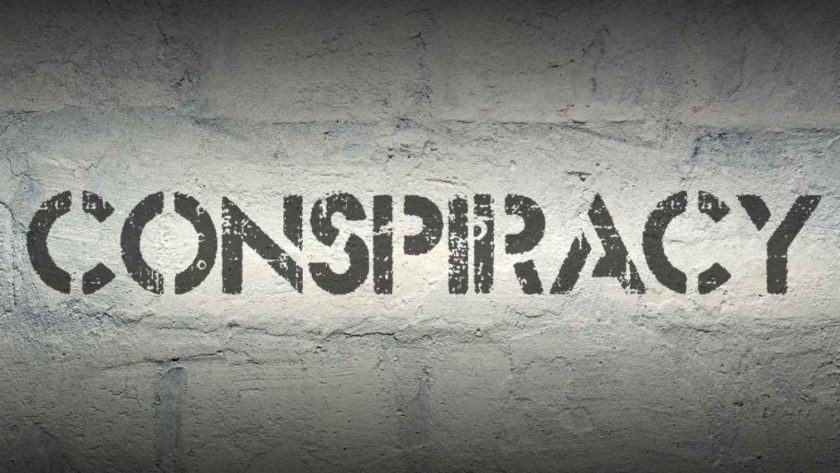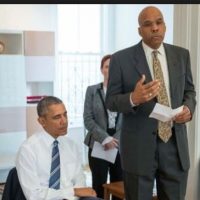“Paranoia predisposed him to believe in nefarious, hidden forces driving events,” the New York Times writes of Trump. “Political opportunism informed his promotion of conspiracy theories.”
But that could just as easily apply to the New York Times.
The Times is unaware of the sublime hypocrisy of accusing the President of the United States of “sowing widespread suspicions about the government” even as it is doing just that.
The paper of broken record specializes in spreading conspiracy theories claiming that President Trump didn’t actually win the 2016 election but that “nefarious, hidden forces” made it happen. Its promotion of conspiracy theories about the 2016 election is obviously informed by its “political opportunism.”
But so are most conspiracy theories.
A conspiracy theory is usually the conspiracy. Democrats spread claims that the JFK assassination was a right-wing conspiracy. That conveniently redirected blame from the Socialist who pulled the trigger and from the Democrats who benefited from it. 9/11 conspiracy theories likewise shift blame away from Muslim terrorists and the Democrats who champion open migration from terror states like theirs.
Before the Democrats used conspiracy theories to delegitimize Trump’s electoral victory, they used them to delegitimize Bush’s victory. You don’t need to be a deep thinker to spot the opportunism.
Or the classic nature of the conspiracy theory: an infinitely expanding plot whose gnostic pleasures come from studying the endless roster of conspirators, the promise of a final takedown never to be delivered, and the seductive appeal of overturning an unwelcome reality with an appealing lie.
Why don’t conspiracy theories ever prosper? Because if they appear in the New York Times, they aren’t conspiracies. What is the Timesian definition of a conspiracy theory? Anything favorable to Trump.
Really.
“The Conspiracy Theory That Says Trump Is a Genius,” is the actual title of a Times op-ed.
Suggesting that the nation’s first billionaire president is a genius is an opinion. Not a conspiracy theory. On the other hand, proposing that the New York Times is biased against Trump is an indisputable fact.
Conspiracy theories, fake news, lies, scandals, corruption and abuses of power are not defined objectively, but along party lines. Timesians are convinced that conspiracies are something that lower class and wrong party people irrationally believe in. Instead truly rational people believe that the 2016 election must be overturned and the winner locked up because of some inchoate string of sentences that begin with Moscow, end with Facebook and take scenic detours through more exotic international locations and random businesses than Anthony Bourdain and a year’s worth of Forbes issues combined.
Successive New York Times stories have spun a web of Trump conspiracies from the Ukraine to Russia, from the United Arab Emirates to Israel. Either Trump is the world’s greatest genius or the New York Times is using crazy conspiracy theories to help sell skin care products to wealthy Manhattanites.
The Times bemoans “baseless stories of secret plots” right before it scoops them up and sells them. The day before that accusation, it ran a story headlined, “Ivanka Trump Wins China Trademarks, Then Her Father Vows to Save ZTE.” The evidence for that secret plot is a string of conjectures and innuendo.
Or baseless.
But it’s not just the Russians, it’s also the Chinese. And the Germans. “Big German Bank, Key to Trump’s Finances, Faces New Scrutiny,” is another Times hit piece. As is, “Trump’s Business Ties in the Gulf Raise Questions” which brings in the Saudis. More Timesian conspiracism includes India, Israel and Uruguay.
See the full story here.
Want more BFT? Leave us a voicemail on our page or follow us on Twitter @BFT_Podcast and Facebook @BluntForceTruthPodcast. We want to hear from you! There’s no better place to get the #BluntForceTruth.







